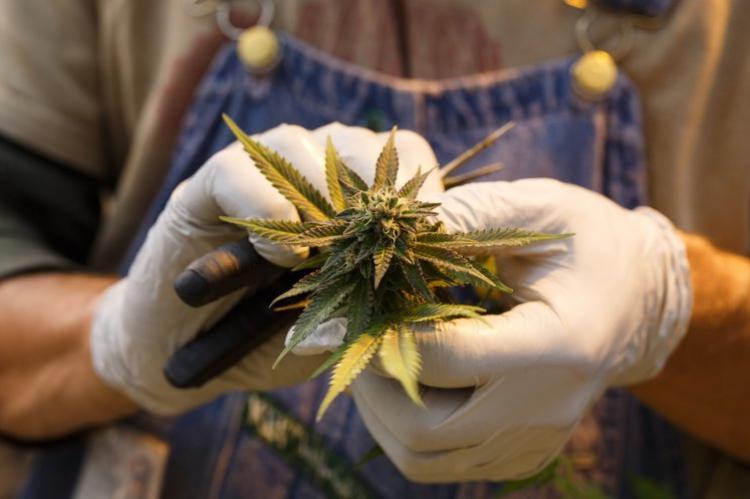Should Washington open its cannabis industry to out-of-state investors?
State lawmakers in both parties are pushing to open the cannabis industry to out-of-state investors, a move that would align Washington state with the rest of the West Coast.
Since 2017, legislation to lift Washington’s six-month residency requirement for investors has faced push-back from small business owners — including Seattle’s Uncle Ike’s — who say the industry would be flooded with big money, leading to consolidation and the death of locally owned craft cannabis stores.
But this year, the conversation has shifted to include more minority voices, who say Washington needs to reckon with existing inequities in the industry first, including how the state’s Liquor and Cannabis Board (LCB) regulates businesses.
The Washington CannaBusiness Association has been pushing for out-of-state investment for years, but recent conversations surrounding racial equity have it — and some lawmakers — reconsidering.
It’s been eight years since Initiative 502 legalized recreational marijuana in the state, and lawmakers are still trying to figure out how to effectively regulate it. Legal weed has presented two unique questions: who gets to invest in the newly legitimized but federally illegal industry, and how to address the residual effects of the war on drugs, which largely targeted people of color.
This year, three bills to loosen the residency requirement — House Bill 1236, Senate Bill 5985, and House Bill 2263 — are being considered in the 60-day legislative session. And a fourth bill would assist minorities in obtaining cannabis business licenses.
Proponents of the bills say that current restrictions are holding businesses back, and put Washington at risk of being left behind in a growing market.
Emily Halvorson, spokesperson for Gov. Jay Inslee, says the governor supports opening the market while also aiding small businesses in order to remain competitive and prepare for what many see as the inevitable federal legalization of recreational marijuana.
One bill Inslee supports, HB 2263, attempts to balance concerns by opening the market, while also providing low-interest loans to women and minority-owned businesses. But Paula Sardinas, from the state’s Commission on African American Affairs, criticized the bill for allowing “the top 1%” to garner outside capital “with the sole intent and purpose” of launching initial public offerings.
“Caching that behind women and minorities while not addressing the fact that we are locking up Black and brown people at almost four times the rate of any other community for cannabis is dishonest and it’s disheartening,” Sardinas told the committee during the bill’s Jan. 16 public hearing.
The commission says Black-owned cannabis businesses are “on the verge of extinction,” estimating that about 1% of recreational cannabis licenses are held by Black and brown people — a figure they say is in line with the rest of the country.
Joy Hollingsworth, co-founder of the Black- and family-owned Hollingsworth Cannabis Co., said that since I-502, she’s been watching more and more Black- and brown-owned stores die off. According to Hollingsworth, high barriers to entry and heavy regulations meant many Black owners couldn’t make the transition from operating medical marijuana shops to recreational shops.
The activist group Black Excellence in Cannabis has accused the Liquor and Cannabis Board of enforcing policies along racial lines, and a recent independent review found that LCB officers lacked consistency and accountability, and the agency is in need of a “culture change.” Director Rick Garza says the agency will move away from strict enforcement and toward a culture of outreach and education with policy changes starting in the next six months.
Peter Manning, a representative from Black Excellence in Cannabis, also testified against the bill, saying, “You can’t put a black face on it and have a white agenda.”
While loosening the residency requirement would mean more revenue for Washington, states such as Oregon, which lifted its ban in 2016, have indeed faced significant consolidation. Billions of dollars from around the country — and around the world — have flooded the market.
The number of retail cannabis stores belonging to a chain increased by 62% between 2017 and 2018, as reported by the Willamette Week, noting that larger companies are able to enter the market and operate at a loss, while smaller shops are run out of business. Oregon currently has no statewide initiative for racial equity in the cannabis industry.
Bethany Randeau, co-founder of Falcanna, an Olympic Peninsula-based cannabis producer, told lawmakers that loans to “a handful of minorities,” as called for in HB 2263, “would be meaningless as they tussle for scraps in an industry run by giant corporations.”
The bill’s prime sponsor, Rep. Eric Pettigrew, D-Seattle, who recently announced his plans to retire, is no longer prioritizing HB 2263, although he says out-of-state investment is inevitable.
“The last thing I want to do is try to hurt minority-owned businesses,” Pettigrew said.
Pettigrew is, however, sponsoring legislation that would create a grant program for the purpose of increasing the number of licenses held by minorities. HB 2870 specifically cites how “African Americans have been arrested at four times the rate of white Americans” for marijuana use, and says social equity was not “fully considered” when Washington began its licensing process. Pettigrew’s bill is scheduled for a public hearing Monday at 1:30 p.m.
Sen. Rebecca Saldaña, D-Seattle, who at one time sponsored a bill that would loosen residency requirements for businesses with labor peace agreements, also says more conversations need to be had in order to open the market in an equitable way. Saldaña said she is no longer pushing for the bill.
But Saldaña said she has heard mixed opinions from minority-owned businesses, with some people saying the residency requirement limits opportunity to those who can self-finance in an industry that is already financially risky.
“We don’t come from wealth, so we need outside wealth,” Saldaña said.
- Log in to post comments

